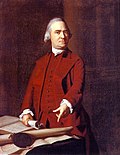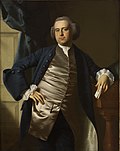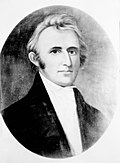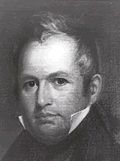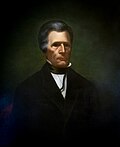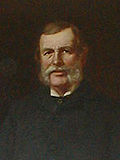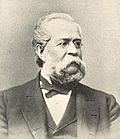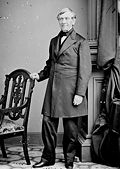| State | Portrait | Governor | Party | Start of term | End of term | Notes |
|---|
| Alabama | 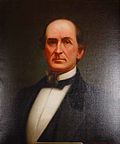 | Robert M. Patton | Independent | December 13, 1865 | July 24, 1868 | Had been a Whig prior to the Civil War |
| Missouri |  | Benjamin Gratz Brown | Liberal Republican | January 4, 1871 | January 3, 1873 | |
| West Virginia | 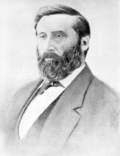 | John J. Jacob | People's Independent Party | March 4, 1871 | March 4, 1877 | Jacob was elected as a Democrat, and reelected under the umbrella of the People's Independent Party in 1872 after failing to win the Democratic nomination. |
| Maine | 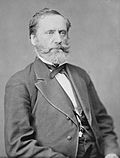 | Harris M. Plaisted | Greenback | January 13, 1881 | January 3, 1883 | Also endorsed by the Democrats |
| Virginia | 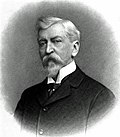 | William E. Cameron | Readjuster | January 1, 1882 | January 1, 1886 | |
| North Dakota |  | Eli Shortridge | Democratic-Independent | January 3, 1893 | January 10, 1895 | |
| Kansas | 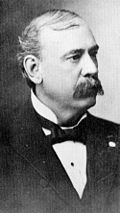 | Lorenzo D. Lewelling | Populist | January 9, 1893 | January 14, 1895 | |
| Washington |  | John Rankin Rogers | Populist | January 11, 1897 | December 26, 1901 | Also endorsed by the Democrats, became a Democrat in 1900, died in office |
| Colorado |  | Davis Hanson Waite | Populist | January 10, 1893 | January 8, 1895 | |
| Nebraska | 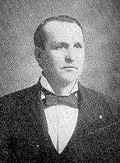 | Silas A. Holcomb | Populist | January 3, 1895 | January 5, 1899 | Also endorsed by the Democrats |
| Nevada |  | John Edward Jones | Silver | January 7, 1895 | April 10, 1896 | Died in office |
| Nevada | 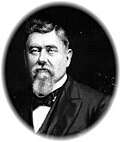 | Reinhold Sadler | Silver | April 10, 1896 | January 5, 1903 | Succeeded to the governorship after the death of Jones |
| Nevada |  | John Sparks | Silver | January 5, 1903 | May 22, 1908 | Also endorsed by the Democrats, died in office |
| Nevada |  | Denver S. Dickerson | Silver | May 22, 1908 | January 2, 1911 | Also endorsed by the Democrats, succeeded to the governorship after the death of Sparks |
| South Dakota |  | Andrew E. Lee | Populist | January 1, 1897 | January 8, 1901 | |
| Kansas | 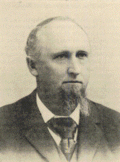 | John W. Leedy | Populist | January 11, 1897 | January 9, 1899 | |
| Nebraska | 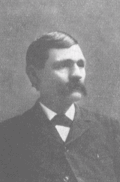 | William A. Poynter | Populist | January 5, 1899 | January 3, 1901 | Also endorsed by the Democrats |
| Wyoming |  | Joseph M. Carey | Progressive | January 2, 1911 | January 4, 1915 | Elected as a Republican, became a Progressive in 1912 |
| California |  | Hiram Johnson | Progressive | January 3, 1911 | March 15, 1917 | Elected as a Republican, became a Progressive in 1912, resigned in 1917 in order to become a U.S. Senator |
| Florida | 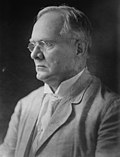 | Sidney Johnston Catts | Prohibition | January 2, 1917 | January 4, 1921 | |
| North Dakota |  | Lynn Frazier | Nonpartisan League [2] | January 3, 1917 | November 23, 1921 | Recalled |
| North Dakota | 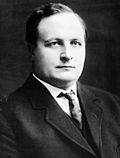 | Ragnvald Nestos | Independent Voters Association [2] | November 23, 1921 | January 7, 1925 | Won the recall election |
| North Dakota | 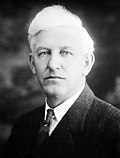 | Arthur G. Sorlie | Nonpartisan League [2] | January 7, 1925 | August 28, 1928 | Died in office |
| North Dakota |  | Walter Maddock | Nonpartisan League [2] | August 28, 1928 | January 9, 1929 | Succeeded to the governorship after the death of Sorlie |
| North Dakota | 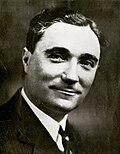 | George F. Shafer | Independent Voters Association [2] | January 9, 1929 | December 31, 1932 | |
| Minnesota |  | Floyd B. Olson | Farmer–Labor | January 6, 1931 | August 22, 1936 | Died in office |
| Oregon | 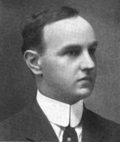 | Julius Meier | Independent | January 12, 1931 | January 14, 1935 | |
| North Dakota |  | William Langer | Nonpartisan League [2] | December 31, 1932 | June 21, 1934 | Removed from office in 1934, elected again in 1936 |
| North Dakota |  | Ole H. Olson | Nonpartisan League [2] | June 21, 1934 | January 7, 1935 | Succeeded to the governorship after the removal of Langer |
| North Dakota |  | Walter Welford | Nonpartisan League [2] | February 2, 1935 | January 6, 1937 | Succeeded to the governorship after the removal of Thomas H. Moodie due to ineligibility |
| Minnesota |  | Hjalmar Petersen | Farmer–Labor | August 22, 1936 | January 4, 1937 | Succeeded to the governorship after the death of Olson |
| Minnesota |  | Elmer Austin Benson | Farmer–Labor | January 4, 1937 | January 2, 1939 | |
| Wisconsin |  | Philip La Follette | Progressive | January 7, 1935 | January 2, 1939 | |
| Wisconsin |  | Orland Steen Loomis | Progressive | N/A | N/A | Died a month before he was to take office |
| Maine |  | James B. Longley | Independent | January 2, 1975 | January 3, 1979 | |
| Alaska |  | Wally Hickel | Alaskan Independence | December 3, 1990 | December 5, 1994 | Previously served as a Republican from 1966–1969, became a Republican in April 1994 |
| Connecticut | 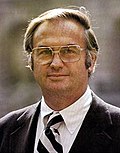 | Lowell P. Weicker | A Connecticut Party | January 9, 1991 | January 4, 1995 | |
| Maine |  | Angus King | Independent | January 5, 1995 | January 8, 2003 | |
| Minnesota |  | Jesse Ventura | Reform/Independence | January 4, 1999 | January 6, 2003 | Elected as Reform, later switched to the Independence Party of Minnesota in 2000 |
| Florida |  | Charlie Crist | Independent | January 2, 2007 | January 4, 2011 | Elected as a Republican, became an independent on May 13, 2010 |
| Rhode Island |  | Lincoln Chafee | Independent | January 4, 2011 | January 6, 2015 | Switched to the Democratic Party on May 30, 2013 |
| Alaska |  | Bill Walker [3] | Independent | December 1, 2014 | December 3, 2018 | Also endorsed by the Democrats |



